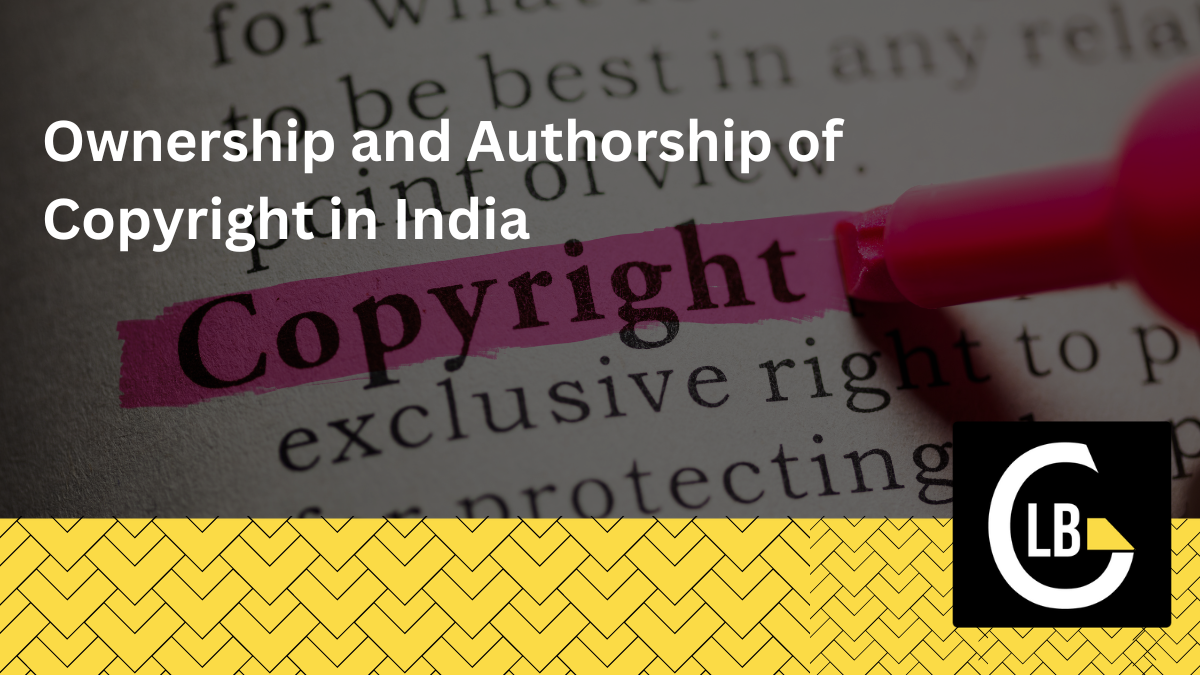If you’ve ever written a story, created artwork, snapped an amazing photograph, or made music, you might have asked yourself, “How do I protect my work?” This is where copyright comes in. Copyright in India is a legal tool that helps creators protect their original work. But who exactly owns the copyright? Is it always the person who creates the work, or can someone else hold the rights?
In India, it’s crucial to understand who owns and controls copyright, especially for creators. Let’s break it down in an easy-to-understand way.
What is Copyright?
Copyright is a legal right that protects original creations like books, paintings, photos, music, films, and even software. It gives the creator the right to use, share, or sell their work and stop others from using it without permission.
Who is Considered the Author?
The “author” is typically the person who creates the work, and in most cases, the author is also the first owner of the copyright. However, there are exceptions where this rule changes depending on the type of work:
- Books, paintings, and similar works: The person who writes the book or paints the picture is considered the author.
- Photographs: The photographer is the author, even if someone else is featured in the photo.
- Films: The producer, who funds and manages the film, is legally considered the author, not the director or actors.
- Sound recordings (like songs or albums): The producer is seen as the author, not the performers or musicians.
- Government works: If a work is created by or under the authority of the government, the government holds the copyright.
Who Owns the Copyright?
While the author is usually the first copyright holder, there are some situations where ownership is transferred or shared:
- Employer vs. Employee: If you’re working for a company and you create something as part of your job (such as a marketing brochure or software), the copyright generally belongs to your employer unless stated otherwise in your contract.
- Commissioned Work: If you pay someone to create something, like hiring a wedding photographer, the copyright still belongs to the creator unless there’s a written agreement to transfer it.
- Joint Ownership: When two or more people collaborate on a project, they may share the copyright. This can get complicated, so it’s smart to agree in writing on how the copyright will be divided.
Transferring Copyright
Copyright can be transferred or licensed to others, giving them the rights to use the work. This can happen in two primary ways:
- Assignment: You can assign or sell your copyright to someone else. For example, a writer may sell the rights to publish their book to a publisher. This assignment must be in writing and should clarify the scope, time period, and where the rights apply (like India or globally).
- Licensing: Licensing allows others to use your work without giving up full ownership. It’s similar to renting out a house—you remain the owner but give someone else the right to use it under specific conditions.
How Long Does Copyright Last?
In India, copyright does not last forever. For most works, copyright remains valid for the author’s lifetime plus 60 years after their death. For movies, sound recordings, and government works, copyright protection lasts for 60 years from the time the work is first published.
Moral Rights of Authors
Apart from the economic rights, authors also have moral rights. These include:
- The right to be credited: The author has the right to claim recognition for their work, even if the copyright has been assigned to someone else.
- The right to protect their work: The author can prevent others from modifying or distorting their work in ways that could damage their reputation.
These moral rights remain with the author even if they no longer own the copyright.
What Happens If Copyright Is Violated?
If someone uses your work without permission, you can take legal action under the Copyright Act, 1957. You can request the court to stop further use of your work, and you may be entitled to compensation for damages. In serious cases, the person violating the copyright could face criminal charges.
Conclusion:
Whether you’re a writer, artist, photographer, or filmmaker, understanding copyright ownership and authorship in India is key to protecting your creative work. It’s important to know when you hold rights, how you can transfer them, and how to secure your work legally. If you ever find yourself unsure, consulting with a legal expert can help ensure your rights are fully protected.
